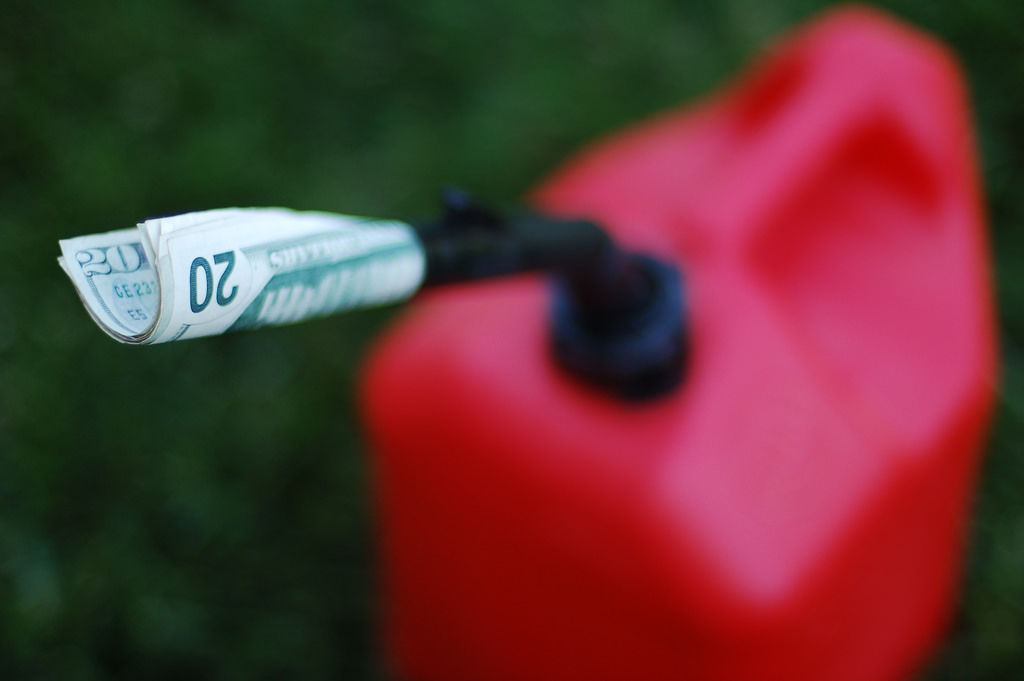As the Trump administration works to rewrite and weaken clean car standards, the targeted Obama-era rules received an unexpected boost from an unlikely source. A new study by President George W. Bush’s anti-regulatory czar found that the current fuel efficiency and emissions standards are good for the economy as a whole, mostly due to the significant savings that American drivers would see at the pump.
“The positive effects on the economy are ultimately much larger in magnitude than the negative impacts, primarily because the savings in expenditures on fuel are quite large relative to the vehicle price premium,” according to the study published in the Journal of Policy Analysis and Management.
The study itself was commissioned by the Alliance of Automobile Manufacturers (or Auto Alliance), a major trade group of American carmakers, which once lobbied hard (relying in part on climate science denial talking points) for a rollback to the standards. That was before the group actually saw the Trump administration’s extreme proposal to freeze the standards at 2021 levels and revoke California’s right to set its own standards, after which the group warned of a “regulatory nightmare.”
At risk are the current fuel efficiency targets of over 50 miles per gallon (or roughly 35 miles per gallon in real-world driving conditions). These standards would nearly double the fleet-wide average fuel economy by 2025.
This latest research was led by economist John Graham, who worked under the second President Bush to cut regulations as the head of the White House Office of Information and Regulatory Affairs (OIRA).
“We were thinking that 2012 Obama-era standards might be harmful to the economy in a low fuel-price environment,” Graham said in an email to E&E News. “We were surprised by the finding.”
Graham’s research also concluded that the Trump administration’s proposal to freeze the standards would ultimately harm the economy and cost drivers considerably more out of pocket.
Gas prices: Arm, leg, first born. Credit: Micah Drushal, CC BY 2.0
“A freeze of the federal standards at 2021 levels will offer only short-term economic relief at the expense of much larger gains in GDP, income, and employment in the long run,” the study found.
Ultimately, the study affirmed the findings of a number of other groups, which have laid out the economic benefits of corporate average fuel economy (CAFE) and emissions standards.
For example, a 2013 report by Synapse Energy, commissioned by Consumer Reports, found that fuel savings would offset the premium paid for a compliant new vehicle by the fourth year of driving, and those savings would be evident from the very first month if the vehicle was leased or financed.
Similarly, the American Council for an Energy Efficient Economy (ACEEE) found cumulative savings after three years of driving, and immediate savings for leased or financed vehicles. Many researchers — including Synapse, ACEEE, the Union of Concerned Scientists, the National Academies of Science, and the Consumer Federation of America — noted net savings and a boost to gross domestic product (GDP) over the lives of new vehicles sold under the Obama-era standards.
Graham’s study, funded by the Auto Alliance, confirms that the only true beneficiaries of Trump’s auto standard rollbacks would be companies who produce, refine, and sell the petroleum products that power conventional internal combustion vehicles.
The CEO of Marathon Petroleum essentially said as much, while boasting to investors recently that the proposed Trump rollback would result in an additional 350,000 to 400,000 barrels of gasoline per day consumed by American drivers.
Main image: Giving it up for gas. Credit: Mike Bitzenhofer, CC BY–NC–ND 2.0
Subscribe to our newsletter
Stay up to date with DeSmog news and alerts








